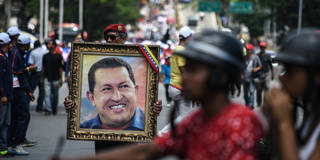As populist politics takes hold in developed countries, Latin America’s long experience with such governments is instructive. Ultimately, the lower- and middle-income voters who support populist leaders typically find themselves worse off than they were before.
LOS ANGELES – For the better part of a century, populism was widely regarded as a distinctly Latin American phenomenon, a recurring political plague on countries such as Argentina, Ecuador, and Venezuela. In the last few years, however, populism has gone global, upending the politics of countries as diverse as Hungary, Italy, the Philippines, and the United States. Jair Bolsonaro, Brazil’s president-elect, is the latest example of a larger trend.

LOS ANGELES – For the better part of a century, populism was widely regarded as a distinctly Latin American phenomenon, a recurring political plague on countries such as Argentina, Ecuador, and Venezuela. In the last few years, however, populism has gone global, upending the politics of countries as diverse as Hungary, Italy, the Philippines, and the United States. Jair Bolsonaro, Brazil’s president-elect, is the latest example of a larger trend.